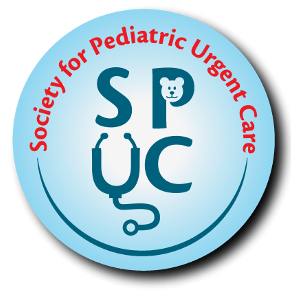Skip to content
ALERTS
- Peritonsillar abscess
- Retropharyngeal abscess – <4yrs
- Epiglottitis
- Foreign body
- Trauma
AGE CONSIDERATIONS
- Strep pharyngitis risk – >2yrs
Gonococcal & Chlamydial pharyngitis – Adolescents
DIFFERENTIAL DIAGNOSIS
- Viral pharyngitis
- Herpangina
- Coxsackie
- GABHS pharyngitis
- EBV
- Post-nasal drip
- Gonococcal pharyngitis
- Chlamydia pharyngitis
- Peritonsillar abscess/cellulitis
- Retropharyngeal abscess
- GERD
- Epiglottitis
- PFAPA syndrome (Periodic fever, Aphthous ulcers, Pharyngitis, & cervical adenitis)
- Pharyngeal Foreign Body
Trauma
EVALUATION
HISTORY
- Onset and quality of pain, associated fever, timing, URI s/sx, malaise, headache, abdominal pain/vomiting, associated neck pain
PHYSICAL EXAM
- HEENT: otoscopic findings, oropharynx, neck, lymph nodes
- Abdomen
- Skin
DIAGNOSTIC FINDINGS
- Pharynx: erythema, edema, exudate, uvular positioning, lesions, strawberry tongue, palatal petechiae, trismus
- Neck/Lymph: ROM, lymphadenopathy
- Abdomen: tenderness, assess for splenomegaly
Skin: rash
CONCERNING FINDINGS
- Peritonsillar/Retropharyngeal abscess: assymetry, uvular deviation, trismus, drooling
- EBV: splenomegaly, ill appearing
- Epiglotitis: tongue protruding, drooling, tripod-sit, ill appearing, anxious
- Foreign body: airway compromise,
Trauma: bleeding, airway compromise, shock
DIAGNOSTIC TESTS
LAB TESTS
- Rapid strep
- Throat culture
- Viral throat culture
- Monospot, EBVserology (IgG, IgM)
- CBC
IMAGING
- Lateral neck xray
- CT – neck
MANAGEMENT
TRANSFER/ADMISSION CONSIDERATIONS
- Significant tonsillar edema with concern for progression to airway compromise
- Peritonsillar or Retropharyngeal abscess
- Dehydration
- Foreign body
- Epiglotitis
- Trauma
COMPLICATIONS
- Peritonsillar and retropharyngeal abscess
- Uvulitis
- Cervical lymphadenitis
- Otitis Media/Mastoiditis
- Acute rheumatic fever, acute post-streptococcal glomerulonephritis, and acute post-streptococcal arthritis – with Group A strep
- EBV-induced reactive arthritis
- Vascular injury (trauma)
PEARLS AND PITFALLS
- Tonsillar lymphoma – asymmetrical enlarged tonsils without signs of infection
- Small tears in penetrating oral trauma usually do not require repair but prophylactic antibiotics are needed
- Oral daily penicillin used to prevent recurrent acute rheumatic fever
- Frequency of tonsillitis needed for tonsillectomy are >6 in the previous year, >5 in the 2 preceding years or 3 episodes per year for 3 years
VIRAL PHARYNGITIS
TREATMENT
Supportive
- Fever and pain reliever
- Push fluids
Complementary & Alternative Therapies
- Salt water or Listerine gargles
Surgery / Other Procedures
FOLLOW UP
Anticipatory Guidance
- Pain reliever
- Typical duration of sore throat is 7-10 days
- Typical duration of fever is 3-5 days
Signs and Symptoms to return
- Persistent fever, sore throat, fatigue/malaise
- Decreased urine output
- Increasing pain
- Trismus, drooling
Activity, Diet
- Activity as tolerated
Increase fluids
PROGNOSIS, COMPLICATIONS
- Typically self-resolves
- Can progress to peritonsillar or retropharyngeal abscess
GABHS PHARYNGITIS
TREATMENT
First Line
- Penicillin VK
- Amoxicillin (40-50 mg/kg divided BID for 10 days)
- IM Penicillin G
Second Line
- Erthromycin/Azithromycin
- Cephalexin (5% cross reactivity with PCN allergy)
- Clindamycin
Supportive
- Fever and pain reliever
- Push fluids
Complementary & Alternative Therapies
- Salt water or listerine gargles
Surgery / Other Procedures
- Tonsillectomy if recurrent infections
FOLLOW UP
Anticipatory Guidance
- Pain reliever
- May take 48-72 hours for pain and fever to stop
Signs and Symptoms to return
- Persistent fever, sore throat, fatigue/malaise
- Persistent vomiting, decreased urine output
- Increasing pain
- Trismus, drooling
Activity, Diet
- No school/work until 24 hours on antibiotics
- Activity as tolerated
- Increase fluids
PROGNOSIS, COMPLICATIONS
- Typically responds well to antibiotics
- Can progress to peritonsillar or retropharyngeal abscess
- Can progress to acute rheumatic fever if untreated
REFERENCES
- Hayden GF, Turner RB. Acute pharyngitis. In: Kliegman RM, Behrman RE, Jenson HB, Stanton BF, eds. Nelson Textbook of Pediatrics. 17th ed. Philadelphia, PA: Saunders Elsevier, 2004.
- Pantell R. Pharyngitis: Diagnosis and Management. Pediatr. Rev., Aug 1981; 3: 35 – 39.
- Pichichero M. GroupA Beta-hemolytic Streptococcal Infections. Pediatr. Rev., Sep 1998; 19: 291 – 302
- Yellon R, McBride T, and Davis H. Otolaryngology. In: Zitelli B and Davis H. Atlas of Pediatric Physical Diagnosis, 5th ed.Philadelphia, PA: Mosby Elsevier, 2007:921-925
ADDITIONAL RESOURCES
- Paradise J, Bluestone C, Colborn DK, Bernard B, Rockette H, and Kurs-Lasky M. Tonsillectomy and Adenotonsillectomy for Recurrent Throat Infection in Moderately Affected Children. Pediatrics, Jul 2002; 110: 7 – 15
- Tanz R, Gerber M, Kabat W, Rippe J, Seshadri R, and Shulman S.
Performance of a Rapid Antigen-Detection Test and Throat Culture in Community Pediatric Offices: Implications for Management of Pharyngitis. Pediatrics, Feb 2009; 123: 437 – 444.
